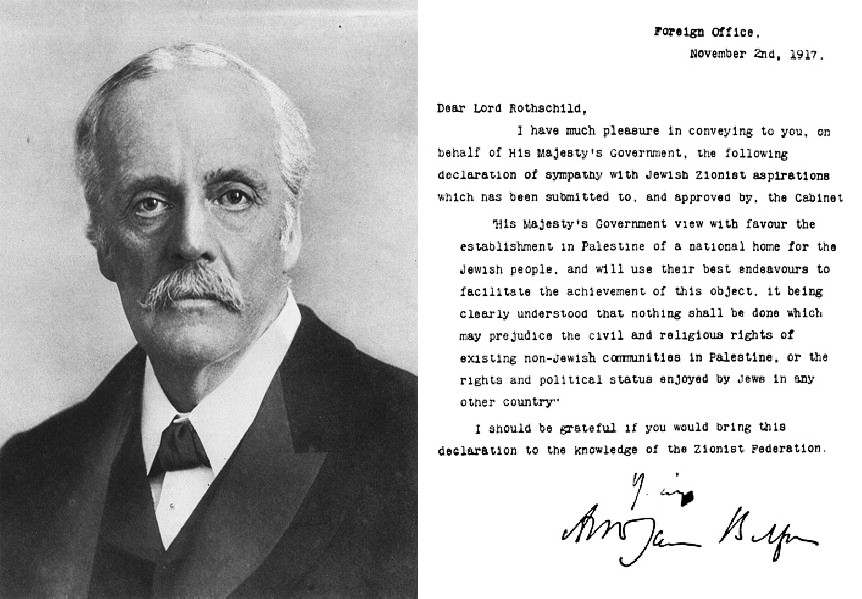RAMALLAH, November 2, 2025 (WAFA) – Today marks the 108th anniversary of the infamous Balfour Declaration, issued on November 2, 1917, by the British government, which granted Jews the right to establish a national home in Palestine.
Issued on November 2, 1917, by then–British Foreign Secretary Arthur James Balfour, the declaration took the form of a letter addressed to Lord Walter Rothschild, a leading figure in the Zionist movement. In it, Britain expressed support for the establishment of “a national home for the Jewish people” in Palestine—without consulting the indigenous Arab citizens who had lived there for centuries.
Historians widely view the declaration as the first major Western political step toward the creation of the State of Israel in 1948. It was made during the height of World War I, as Britain sought to secure strategic alliances and consolidate its influence in the Middle East. Zionist leaders, particularly Chaim Weizmann, lobbied British officials with the promise that Jewish support would serve British wartime and imperial interests.
Before its issuance, Britain obtained the approval of U.S. President Woodrow Wilson, while France and Italy endorsed the declaration soon after. In 1920, the San Remo Conference placed Palestine under British mandate, explicitly assigning London the task of implementing the declaration’s terms. The League of Nations’ 1922 mandate formalized this arrangement—transforming the Balfour Declaration from a British pledge into a broader Western commitment.
For Palestinians and Arabs, the declaration represented a profound betrayal. Britain had previously assured Sharif Hussein of Mecca that Arab independence would be recognized after the war, only to make a conflicting promise to Zionist leaders. To quell growing anger, British officials claimed that Jewish settlement would not infringe on Arab interests. Yet, on the ground, British authorities actively facilitated Jewish immigration, land acquisition, and the establishment of Zionist institutions—laying the groundwork for the future state of Israel.
From the 1920 Nabi Musa riots to the 1936–1939 Palestinian Revolt, Palestinians rose repeatedly against British rule and Zionist expansion. These uprisings reflected a growing sense of dispossession and political marginalization, as the demographic and territorial balance of Palestine began to shift dramatically under British supervision.
At the time of the declaration, the Jewish population in Palestine numbered around 50,000, compared to an estimated 1.65 million Arabs. Yet the Balfour Declaration granted political recognition only to the Jewish community, limiting the indigenous majority to “civil and religious rights” without any national or political standing.
More than a century later, the Balfour Declaration stands as a stark symbol of colonial injustice—an imperial pledge that disregarded the rights and existence of the Palestinian people on their own land. For Palestinians, it represents the beginning of a century-long struggle against displacement, occupation, and denial of self-determination—an enduring testament to how imperial powers reshaped lives without consent or accountability.
As the world marks 108 years since its issuance, Palestinians continue to demand recognition of the historic wrongs rooted in that fateful declaration and justice for generations who have lived under their consequences. The legacy of the Balfour Declaration is not a relic of the past but a living reminder that true peace requires confronting and rectifying the injustices that began with it.
The consequences of this policy culminated in 1948, when the establishment of Israel led to the Nakba, or catastrophe, during which more than 700,000 Palestinians were expelled or fled from their homes.
M.N









